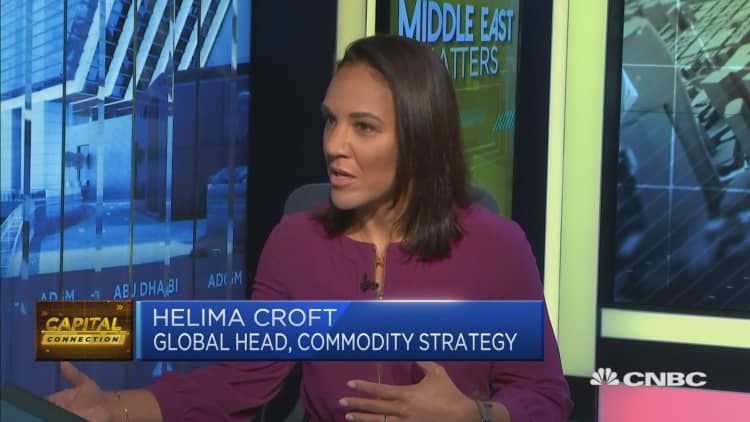
A surprise election result in Iraq is likely to add to tensions between Iran and Saudi Arabia and could push the country to become the next battleground for religious and political influence in the Middle East, according to oil market analyst Helima Croft.
With the majority of votes counted following a parliamentary election at the weekend, the "Sairoon" alliance of militant cleric Muqtada al-Sadr and Iraq's communist party looks likely to gain the largest share of the vote, a surprise result given that pollsters predicted the re-election of Prime Minister Haider al-Abadi.
In fact, al-Abadi's "Victory" coalition was in third place, trailing the "Conquest" coalition led by Iranian-backed militia leader Hadi al-Amiri, AP reported.
If preliminary results are borne out in the final result, which is yet to be announced, al-Sadr won't become prime minister as he did not run for election himself. But he will be able to choose the next leader and could heavily influence Iraq's relations with key regional powers.
Still, it is expected that no one group will win enough seats required for an outright majority in parliament and it's likely that al-Sadr could form a coalition with Abadi, although negotiations could take months. Al-Abadi said Monday that he is ready to cooperate and work with all Iraqi parties to form a strong government, Iraqi News reported.
Interesting character
Remarking on the political rise of Moqtada al-Sadr, oil market expert Helima Croft told CNBC that his influence could affect Middle Eastern relations at a time when geopolitical tensions between Iran and Saudi Arabia — and their various political interests and allies in the region — are running high.
"The return of al-Sadr is an amazing development," Croft, global head of commodity strategy at RBC Capital Markets, told CNBC's "Capital Connection" on Tuesday.
"Al-Sadr is an interesting character because he has very, very difficult relations with the U.S. but increasingly difficult relationships with the Iranians as well. And the Iranian government has said they don't want him to form a coalition and he's recently had a rapprochement with Saudi Arabia," she said.
"So I think it's going to be very important to watch what happens in Iraq. I think it's potentially a key proxy battle now over the future of the Middle East," she added.
Al-Sadr gained notoriety in the region for encouraging attacks against Western troops during the U.S.-led invasion of Iraq in 2003, but he is an avid critic of nations closer to home too. Despite being a Shia religious leader, al-Sadr is no friend of Shia-majority Iran, which supported his rival al-Amiri in the vote.
However, al-Sadr has made overtures to Iran's regional rival Saudi Arabia, meeting with Crown Prince Mohammed bin Salman in 2017, with talks focused on improving Iraqi-Saudi relations.
Iran reaction
How Iran might react to having a political critic, al-Sadr, calling the shots in Iraq remains to be seen, particularly at a time when Iran is looking more internationally isolated following the withdrawal of the U.S. from the Iranian nuclear deal. "The Iranians do not want to let Iraq go," Croft said, although she added that Iraq's ties with Saudi Arabia could continue to improve.
"With al-Sadr I think it's actually ok," Croft said. "He went to Saudi Arabia, he sat down with the crown prince, so I think an al-Sadr-Abadi coalition keeps that (relationship) intact. We really want to watch the Iranian-backed candidates, they're the ones that would want to kill that rapprochement."
Croft said that there was speculation that had President Donald Trump waited until the previous deadline of May 12 before withdrawing from the nuclear deal, instead of announcing his decision on May 8, incumbent Iraqi Prime Minister Haider al-Abadi might have performed better in the vote.
"Going early (from the deal) potentially motivated the Iranians to basically get out and try to ensure that Abadi did not receive a second term," she said. "But this can be seen as an anti-U.S. vote. You have two candidates that came in first and second, with their coalitions, that had stridently anti-U.S. positions. And the U.S.-backed candidate Abadi had to walk a very fine line between the Iranians and the U.S. (while) underperforming."


